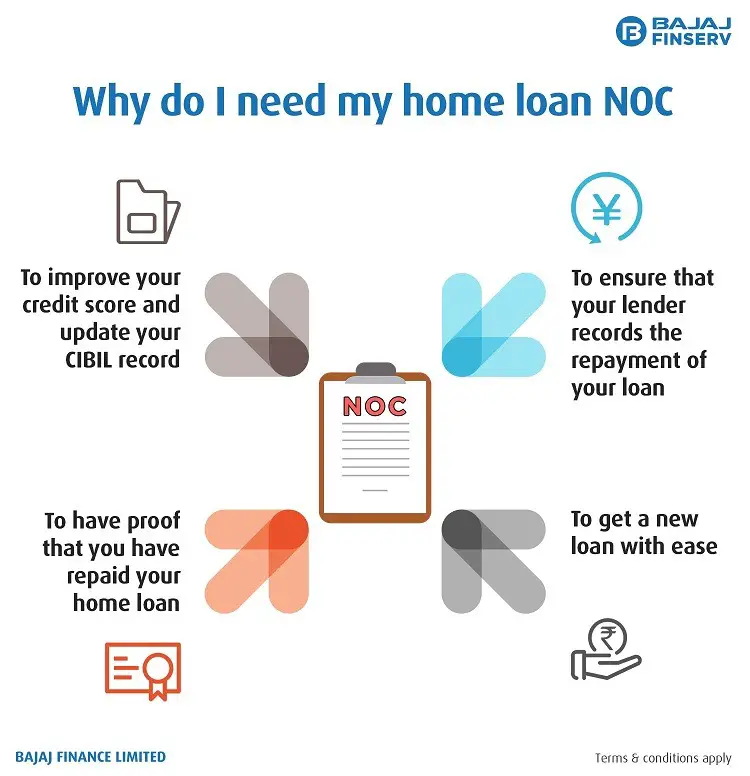Why You Received The Borrower Notification Letter
The borrower notification letter includes additional information about your mortgage as part of our continued efforts to promote long-term, successful homeownership.
If the balance in the letter is different than the balance on your mortgage payment, the letter may not reflect recent payments you’ve made. For information about your principal balance or mortgage, contact your servicer, which is the company you make your mortgage payments to, using the contact information on your mortgage statement. Do not contact Freddie Mac.
The sale of your mortgage to Freddie Mac does not affect any term, payment or condition of your mortgage. Learn more in the borrower notification letter FAQs.
What’s The Difference Between A Lender Servicer And Investor
First, let’s define the terms “lender,” “servicer,” and “investor” when it comes to the mortgage business.
- Lender. The “lender” is the financial institution that loaned you the money. The lender owns the loan at that point. Later on, the lender might sell the mortgage debt to another entity, which then becomes the new owner of the loan. Mortgages are frequently bought and sold in the mortgage industry. The sale of your mortgage loan to a new owner doesn’t affect the terms or conditions of the loan contract.
- Servicer. A “servicer” handles the day-to-day tasks associated with mortgage loans, like collecting and processing payments, responding to borrower inquiries, and managing escrow accounts. The servicer might be the lender that gave you the loan . Or, it might be a separate company that acts on behalf of the loan owner. That servicer might then hire a vendor, called a “subservicer,” to take on the servicing duties rather than servicing the loan itself.
- Investor. A mortgage “investor” is the party that purchases home loans that lenders originate. Fannie Mae and Freddie Mac, for example, are investors that buy loans from lenders on the secondary market.
But I Just Received A Letter From Another Company That The Servicing Of My Loan Has Been Transferred
As mentioned earlier, your mortgage can be held by one company and serviced by another. Some holders of loans are not experts in the servicing and collection of their payments. Therefore, they transfer the servicing rights for a fee to another company.
For example, your loan may be owned by Fannie Mae, but serviced by Wells Fargo. In this example, your payments and questions will all be directed to Wells Fargo, but the company that ultimately holds your mortgage loan is Fannie Mae.
You May Like: How Much Would An 85000 Mortgage Cost
How Long Does It Take For Help To Buy To Release Funds
If you are registered with the Help to Buy: ISA scheme, it can take up to 5 business days for this application to be processed and for funds to be transferred to your client account. If you are not registered with the Help to Buy: ISA scheme, it will take up to 15 business days for funds to be transferred.
Did Cenlar Sell My Mortgage

According to Citi, the deals with New Residential and Cenlar will end Citis mortgage servicing operations by the end of 2018. While the deal is awaiting approval, Citi will continue to service the mortgages, before transfer the servicing to Nationstar, which will subservice the loans for New Residential.
Recommended Reading: When Do You Lock In Your Mortgage Rate
Different Parties Involved In The Mortgage Servicing Industry
Itâs easier to learn about mortgage sales when you know the parties that are involved. Here are the main players:
-
Mortgage lender or mortgage owner: This is the company that owns your mortgage. The mortgage owner is also known as your creditor. It could be the company that originally lent you the money for your property, or it could be a different company that bought your mortgage. If you need to find out who owns your mortgage, you can contact your mortgage servicer for information. You might be able to find information on the servicerâs website.
-
Mortgage servicer, loan servicer, or servicing company: This is the company that manages the mortgage. The servicer deals with your monthly payments, communicates with borrowers, and manages escrow accounts and foreclosure proceedings. A mortgage lender can service its own mortgage and be both the mortgage owner and servicer, but this often doesnât happen. Also, even if your mortgage changes hands, your mortgage servicer might stay the same. A mortgage servicer can also have a sub-servicer to help out.
You can find the contact information for your mortgage servicer on your mortgage statement. If you canât find your mortgage statement, you can look up information on the MERS website or call the MERS toll-free number 1-888-679-6377. MERS is a tracking system for mortgages and mortgage servicers.
-
Investor: This is the company that buys mortgages. Freddie Mac and Fannie Mae are mortgage investors.
Can My Mortgage Be Sold Again
Yes, your mortgage can be sold again and may be sold multiple times during the life of the loan. Long gone are the days where you walk to your local bank for your mortgage and they own and service your mortgage for the life of the loan. While your mortgage will most likely be sold in todays market, it is this fast moving economy that allows for mortgages to be issued in both up and down economies.
Don’t Miss: What Is Prime Rate For 30 Year Mortgage
Both The Debt And The Servicing
The third possibility is that your lender will sell both the debt and the servicing of your mortgage to another organization. In this case, you will be informed, in the same way, you would if only the servicing had been transferred.
Some lenders choose to make money as a mortgage originator but do not want the ongoing work of servicing the loan and carrying the debt.
Transfer By The Lender
Mortgage transfers by lenders are quite common. Unlike the borrowers ongoing obligation to make payments, the lender only has to receive payments and enforce the debt. Many lenders use third-party companies known as loan servicers to handle the receipt of payments. The servicer receives a fee for each payment they process for the lender. Other companies, known as loan originators, often handle the process of issuing loans. They might hand everything off to a loan servicer after closing.
Read Also: How To Sell A Private Mortgage Loan
Your Rights After Your Lender Transfers Your Home Loan
5 minute read â¢Upsolve is a nonprofit tool that helps you file bankruptcy for free.Think TurboTax for bankruptcy. Get free education, customer support, and community. Featured in Forbes 4x and funded by institutions like Harvard University so we’ll never ask you for a credit card.Explore our free tool
In a Nutshell
If your lender sells or transfers your home loan, you have the right to be notified. This transfer won’t change the terms of your mortgage but if you are unsure of who your new mortgage holder or servicer is, you could suffer negative consequences.
Written bythe Upsolve Team. Legally reviewed byAttorney Andrea Wimmer
If youâre a homeowner, you might not realize that after you sign your mortgage, your lender will likely sell your mortgage or transfer your home loan. This helps mortgage companies stay in business and make new loans. Mortgage sales are allowed under federal law and are common in the lending industry. A mortgage sale wonât change your rates or mortgage contract, but it might affect you or your credit history if you donât get the proper notices or if the new or old mortgage servicer makes a mistake.
Homeowners have rights after a lender transfers their home loan. Weâll help you learn about those rights and gain some knowledge on mortgage sales and the home mortgage industry.
How A Mortgage Can Be Profitable
This market exists because mortgages can be profitable in three ways:
When a lender transfers your mortgage, they might transfer:
You May Like: Can I Get A Mortgage After Filing Bankruptcy
How Having Your Mortgage Sold Affects A Modification
Loan modifications are designed to make mortgages more affordable for struggling homeowners but having your loan sold can throw a wrench in your plans. If youre trying to get approval for a modification or short sale, you may have to begin the process all over again if your lender sells your mortgage, which can be problematic if your finances are already tight.
If youre aiming for a modification, for example, youre required to make trial payments before its formally approved. If you have to start all over again, the new lender may require a higher trial payment amount which can put even more strain on your budget. In the case of a short sale, having to wait a few more months to get some relief will only result in additional damage to your credit if youre already behind on the payments.
Your Mortgage Experience Has Just Been Upgraded

Consider yourself bumped up to first class. As the nations largest non-bank home loan servicer, were creating a better home loan experience for every homeowner we serve. Whether its our award-winning app and website, or do-whatever-it-takes customer service team, were here to help you throughout your entire homeownership journey, from starter house to dream home.
Recommended Reading: Can You Have 3 Mortgages On One Property
What To Do If A Problem Arises
Sometimes, payments sent to the old servicer get misplaced during a transfer, which means the new servicer might not credit the amount to your account. If you send a payment to the old servicer, but it isnt returned, and the new servicer doesnt credit it to your account, contact your new servicer and ask them to credit the account. You may call the servicer and send a “notice of error” to both the new servicer and the old servicer along with copies of any supporting paperwork. After you send your notice-of-error letters to the servicers, federal law requires both the new servicer and old servicer to investigate and respond .
While the servicers look into the matter, keep making your regular payments, as scheduled, to the new servicer. Monitor your account with the new servicer for at least two months to ensure the money is being applied to your account.
If the new servicer refuses to credit a payment you sent the old servicer to your account, consider talking to an attorney to get information about how you can enforce your rights.
How To Avoid And Fix Problems With Your Servicer
Typically, the servicer must credit a payment to your account the day they get it. That way, you dont owe extra fees and the payment doesnt look late to the lender. Late payments show up on your credit report and may affect your ability to get credit in the future. Too many late payments can lead to default and foreclosure.
Read Also: How Far Can You Fall Behind On Your Mortgage
Understanding Mortgage Loan Transfers And Servicing Transfers
After you take out your mortgage loan, it is likely that the original lender will eventually sell the loan to a new owner, called a “holder” or “investor,” or transfer the servicing of your loan to a new servicer, which means the right to manage the loan is transferred.
What Is a Mortgage Servicer?
Mortgage servicers process loan payments and manage the loan account on behalf of the loan holder. The servicer is the company to which you make your payment. Sometimes, the owner of the loan will also service it, but often the servicer isn’t the loan owner.
Mortgage loans and the rights to service them are frequently bought and sold between banks and investors.
Who Actually Owns My Mortgage
Where this process can get confusing is that neither the company that originated your loan, nor the servicer, may actually own your loan. Today, the majority of home loans are guaranteed or issued by Fannie Mae, Freddie Mac or the FHA, government-chartered companies that purchase loans from lenders to free up money so they can then lend to other mortgage borrowers.
Recommended Reading: How Many Times Annual Salary For Mortgage
How To Avoid Having Your Mortgage Sold
If youre really concerned about your mortgage changing hands, you should think about it before you ever apply for a mortgage and seek out a portfolio lender. A portfolio lender is an institution that keeps loans within their own portfolio instead of selling them.
If you already have a mortgage, there is likely a clause in the contract that permits its transfer to a new owner. If thats the case, there isnt much you can do to stand in the way of a sale other than refinance your mortgage.
While rates are low right now, keep in mind that refinancing comes with thousands of dollars worth of closing costs. Compare rates, and use Bankrates refinance calculator to determine whether its worth the extra costs.
Getting Notice Of A Servicing Transfer
Under the Real Estate Settlement Procedures Act , if your lender transfers your loan to a new servicer, your current servicer and the new servicer have to send you a letter. These letters are usually called “goodbye” and “hello” letters in the mortgage business.
Sometimes, payments sent to the old servicer get misplaced during a transfer, which means the new servicer might not credit the amount to your account.
In most cases, the old servicer must provide you with a notice of servicing transfer not less than 15 days before the effective date of the transfer. Your new servicer must provide a servicing transfer notice not more than 15 days after the transfer date. Or the servicers might choose to send a combined notice not less than 15 days before the transfer. A combined letter will include both goodbye and hello information from the servicers. .
Rarelythough it can happenborrowers get a scammer letter saying a new servicer is handling their loan. This scam involves someone pretending to be the new servicer and stealing the borrower’s monthly payments. If you get just one letter about a servicing transfer, make sure it includes all required information and comes from both servicers. Also, to be safe, verify the transfer by calling your current servicer before you send any payments to a new servicer.
Read Also: How Much Is A Mortgage On A 265 000 Home
Understanding Why Mortgages Change Hands
Are you one of the many homeowners who has opened up a letter from your mortgage provider and read that your mortgage loan has been transferred? Did it prompt an increase in your heart rate and cause you to worry what this means for you and your mortgage?
First of all, try not to become too concerned. What many of us do not realize is that a mortgage can be transferred not just once but multiple times over the term of a loan. The majority of borrowers never even know it has happened.
In fact, it is only under certain circumstances that your lender is under an obligation to tell you that your mortgage has been sold.
Yes, this can be a worry, but dont panic. Your mortgage being transferred will not affect the terms of your loan in any way. You will have the same repayments, interest rate, and loan conditions as you did when you signed your mortgage agreement.
So, you may be asking yourself, if nothing changes for me, why do mortgage loans get transferred?
To understand why a lender might transfer your mortgage, first, it is crucial to change the way we think about our home loans.
Why Was My Mortgage Transferred To Cenlar

If your mortgage is included in or tied to a bankruptcy, it will still be transferred to Cenlar for servicing.
Why did my mortgage loan get transferred?
From the perspective of a borrower, the sale of your mortgage usually means that the servicing of your mortgage has transferred to a new company, meaning you will be sending your monthly payment to a new company. This can happen a couple different ways, depending on who you chose to work with on your mortgage.
Does cenlar own mortgage?
Managing your mortgage or home equity loan is easy with Citi and our trusted servicing partner, Cenlar FSB. If you need assistance with your account, were here to help.
What happens when mortgage gets transferred?
A transfer or sale of your mortgage loan should not affect you. A lender cannot change the terms, balance or interest rate of the loan from those set forth in the documents you originally signed. The payment amount should not just change, either. And it should have no impact on your credit score, says Whitman.
Why does my mortgage servicer keep changing?
There is nothing you can do to stop the changes in mortgage servicers. This is likely caused by your loan being sold to different investors. Often loans are sold right after the closing, again at the one year anniversary, again at 3 years and once more at 5 years.
Recommended Reading: Do I Qualify For A Second Home Mortgage
